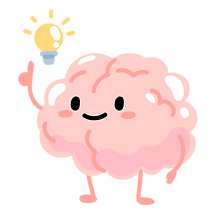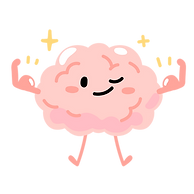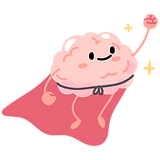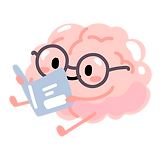Neurodiversity
What is Neurodiversity?
Neurodiversity is a term used to recognize the natural diversity and variability of the human brain and promote the inclusion and acceptance of all individuals, celebrating the diversity their neurological functioning.
Neurodiversity is the concept that neurological differences, such as Autism, ADHD, Dyslexia, and other cognitive variations, are natural and valuable forms of human diversity. It recognizes that these differences should be respected and appreciated as part of the rich tapestry of human experience, rather than being pathologized or viewed solely as deficits.


What does it mean to be Neurodivergent?
People who have neurocognitive functioning different from the majority are called neurodivergent.
There is no such thing as a normal or abnormal brain, but simply differences in neuro - wiring. Every human brain is as unique as our fingerprints. We can respectfully acknowledge these differences according to the categories: neurotypical and neurodivergent. Neurodivergent individuals may be given a broad range of labels from Dyslexic to ADHD to Autistic, to name a few. These are just some examples of different neuro - wirings that can exist under the neurodivergent umbrella.



Understanding Neurodiversity
The neurodiversity movement advocates for the acceptance and inclusion of all individuals, regardless of their neurological makeup. It promotes the idea that neurological variations result from normal, natural differences in the human genome. This perspective shifts the focus from "curing" or "fixing" individuals to accommodating and supporting their unique needs and strengths.
How to support Neurodiversity:
-
Valuing Differences: Neurodiversity emphasizes the value of different ways of thinking, learning, and experiencing the world. It challenges the notion that there is a single, "normal" brain type.
-
Inclusive Support: Embracing neurodiversity means providing inclusive support systems that allow individuals to thrive in various environments, whether in education, the workplace, or social settings.
-
Reducing Stigma: Promoting neurodiversity helps reduce the stigma and discrimination often faced by individuals with neurological differences, fostering a more accepting and understanding society.
-
Empowering Individuals: By recognizing and supporting the strengths and talents of neurodiverse individuals, we can empower them to contribute meaningfully to their communities and pursue fulfilling lives.
Why It Matters
Understanding and embracing neurodiversity is crucial for creating inclusive communities where everyone can feel valued and supported. By educating ourselves and others about the importance of neurodiversity, we can help build a world that celebrates and respects neurological differences.



Resources
The Arc of Snohomish County:
-
Description: The Arc of Snohomish County is a nonprofit organization that advocates for individuals with developmental disabilities and their families. They provide support, resources, and services to promote inclusion, independence, and quality of life for individuals with disabilities.
Website: arcsno.org
Snohomish County Parent to Parent:
-
Description: Snohomish County Parent to Parent offers support, education, and advocacy for families of children with special needs. They provide peer support, information, and resources to empower parents and caregivers in navigating the challenges of raising a child with special needs.
Washington Autism Alliance & Advocacy (WAAA):
-
Description: WAAA is a nonprofit organization that provides support, resources, and advocacy for individuals with autism spectrum disorder (ASD) and their families. They offer programs, services, and information to promote understanding, acceptance, and inclusion for individuals with ASD.
Website: washingtonautismadvocacy.org
ChildStrive:
-
Description: ChildStrive provides early intervention and developmental support services for children with special needs and their families. They offer programs, resources, and information to promote the healthy development and well-being of children and families in the community.
Website: childstrive.org
